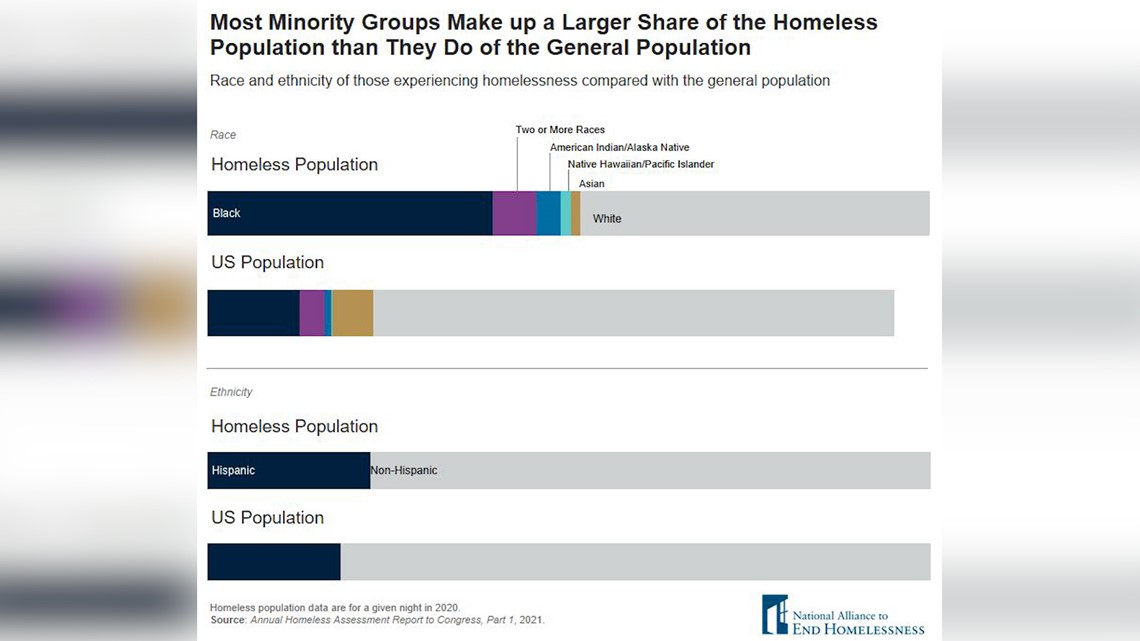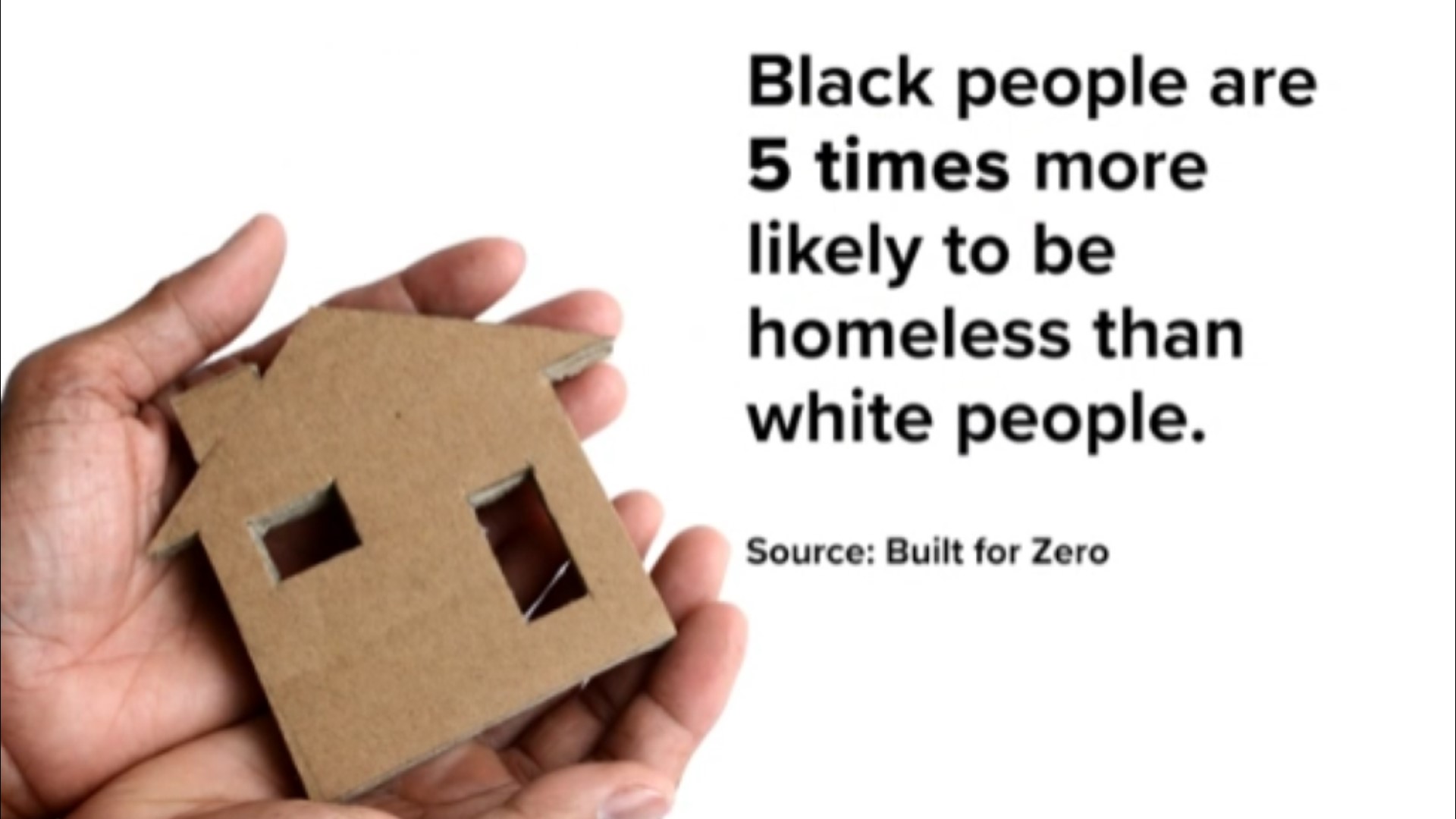SACRAMENTO COUNTY, Calif. — Kimberly Harris is searching for a safe place to call home in the Greater Sacramento region. She says it's not easy, especially with six children and three grandchildren.
"The price of living has gone up so much," Harris said. "It makes it harder, especially for low-income families. For example, a housing requirement for having three times the monthly rent, it messes with my mental health. It makes me feel like a failure."
Harris, who's a Black woman, has been experiencing homelessness since October 2021. Outside of the the lack of affordable housing in California, she says the ongoing COVID-19 pandemic is to blame too.
"Unfortunately, I was one of the many families that experienced hardships because of the vaccine mandate," Harris said. "We've been homeless during the pandemic, and it's been really hard. I've been able to survive, day by day, by just having support from the community, homelessness programs, church family and my faith in God."
When it comes to homelessness, Harris is not alone. Even though America's homelessness crisis hurts all communities, people of color are disproportionately impacted.
Most minority groups, especially Black and Indigenous people, experience homelessness at higher rates than white people, largely due to long-standing historical and structural racism, according to the National Alliance to End Homelessness, a nonprofit committed to preventing and ending homelessness in the U.S.
Black people suffer from homelessness more than any other group. According to the National Alliance to End Homelessness, Black people represent 13% of the general population, but account for 39% of people experiencing homelessness and more than 50% of homeless families with children.


Sacramento County is working to fight homelessness through an equity-based approach. That includes proposing the "Safe Stay Communities" project. The county wants to build 100 tiny homes on a vacant lot at Florin and Power Inn Roads to help at least 125 people transition out of homelessness.
"As this crisis grows in Sacramento, our response needs to be varied," said Emily Halcon, director of Homeless Initiatives, Sacramento County. "The project is, specifically, based in a lower-income community. It's a community that has a disproportionate number of Black and Brown homeless people. We are going to serve those people in that community first."
The Sacramento County Board of Supervisors plan to vote on the proposal on Wednesday. If approved, the site could open later this fall, but it will only serve single adults and couples, not children.
For Harris and other families with children, the tiny homes project is not an option.
"I have a family of 10," Harris said. "What about the big families like mine? We need those types of programs for larger size families too."
The county is currently providing emergency shelters and motel voucher programs to help larger families. But, more resources are needed to end the growing homelessness crisis.
"The ultimate solution to homelessness is more robust housing and supportive services," Halcon said. "Shelter plays a really critical component for people who are living unsheltered. The project is really seen as one part in a larger approach to the county working to create permanent exits out of homelessness."

